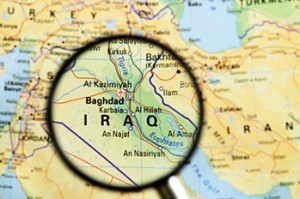In Bertolt Brecht’s drama, The Good Person Of Sechwan, the Gods are looking for a kindhearted individual. Their search almost ends in failure. Finally, they meet the prostitute, Shen Te. Judging her to be kind and magnanimous, they give her a large sum of money. Shen Te decides to open a tobacco shop. The news about her good fortune spreads like wildfire throughout the town. In no time, people invade her shop and pillage it. In order to avoid going bankrupt and for the sake of remaining a good person, Shen Te invents an uncle, Shui Ta, who possesses the toughness of a seasoned businessman. Shui Ta stops the bleeding by employing capitalist methods and principles. Naturally, the townspeople miss Shen Te. They accuse Shui Ta of murdering her. In court, Shen Te proves that she and Shui Ta are the same person. The moral of the story is that whoever wants to do good in a bad world must be ready to get tough.
Like the Gods in Sechwan, the last two presidents of the United States have had good intentions concerning Iraq, but have botched their missions in diametrically opposite ways. In the first act, George W. Bush and his administration fell for the theoretical mirage that the removal of the Sunni Saddam Hussein and the empowerment of the Shi’a majority will herald an avalanche of democratic transformations throughout the Greater Middle East. This amateurish dream quickly collapsed in the face of the realities on the ground. The sudden disappearance of the Sunni dictatorship awakened the desire by the Shi’a majority to establish absolute rule without opposition over the Sunnis and the Kurds. The resulting Sunni violence was countered by an equally bloody response from the United States and the Shi’a both inside and outside of Iraq. The awkwardly named Provisional Coalition Authority (CPA), ensconced in the equally derisively labeled Green Zone, was utterly clueless and quickly lost control over the turbulent situation. Thus, the American Shen Te/Shui Ta emerged in three contradictory forms. The towering Shen Te/Shui Ta repeated ad nauseam the original slogan of democratization and human rights. In their second incarnation, Shen Te/Shui Ta panicked, lost sight of the main objective of the invasion and subsequent occupation of Iraq, and turned their full attention to quell the Sunni insurgency. In their final appearance under Barack Obama, Shen Te/Shui Ta withdrew, leaving the job undone. The premature and disorganized withdrawal of the United States at the end of 2011, like the British pullout in the early 1930s, unleashed even more sectarian violence, and raised the spectre of the impending collapse of the Iraqi state.
Central to the United States failure in Iraq has been that neither the Bush nor the Obama Administration has understood what is really happening in Iraq. True, from its inception, Saddam Hussein’s dictatorship was suffering an irredeemable crisis of legitimacy. Yet more importantly, Iraq had suffered, because it could never overcome the historic contradictions between the fall of the Ottoman Empire and Great Britain’s half-hearted intervention that neither solved nor managed the new state’s transition from three irreconcilable Muslim sects’ dogged determination to seize absolute power, to a union of Kurds, Sunni and Shi’a Arabs in a secularized political entity. Ignoring its fundamental interests and that of its Sunni allies in the region, the Bush Administration opted for the Shi’a of Iraq, in order to counter Sunni radicalism in the Greater Middle East and beyond.
Emphasizing democracy and human rights, the Bush Administration downplayed the pervasive power of Islam in Iraq and throughout the region. Thus, instead of taking advantage of the coalition forces’ decisive military victory and quickly delegitimize Iran’s aggressive theocratic expansion as well as Sunni jihadism, the Bush Administration squandered its momentum for facilitating a delusional alliance with Iraq’s Grand Ayatollah Sistani. The tragic consequences of this baseless and unprincipled policy was enshrined in the Iraqi constitution, legitimizing Islam as the state religion. Adding insult to injury, Washington cooperated with a Shi’a cleric, who had propagated “najis”, the almost total exclusion of non-Muslims from society, due to their alleged physical and spiritual impurity. Exclusively out of political correctness, cultural relativism and against the facts, the Bush Administration declared Sistani a moderate and an advocate of political and religious freedom. Predictably, this construct collapsed, and even the militarily successful surge in 2007 could not prevent Iraq from sinking into the depths of chaos and anarchy.
The idiocies of the United States’ adventures both in Iraq and in Afghanistan had been compounded by the equally outrageous incoherence of the so-called progressives and liberals throughout the political spectrum. Having declared that doing good regardless of the prevailing facts on the ground is not just a moral obligation but the only proof of moral superiority, these ShenTe-like hypocrites equate modernization, multiculturalism and globalization with the unquestionable responsibility of Western societies toward the less developed states. However, the main lesson from the interventions in Iraq and Afghanistan is that only when Islam can be banished as the absolute political credo of the state and be limited to the private sphere of the believers, would it be possible to undertake meaningful reforms in any Muslim state. Consequently, when the United States and the European Union speak of multiculturalism and globalization, they must advance beyond empty slogans and fight decisively against a religious and militaristic ideology that is determined to achieve absolute world dominion.
